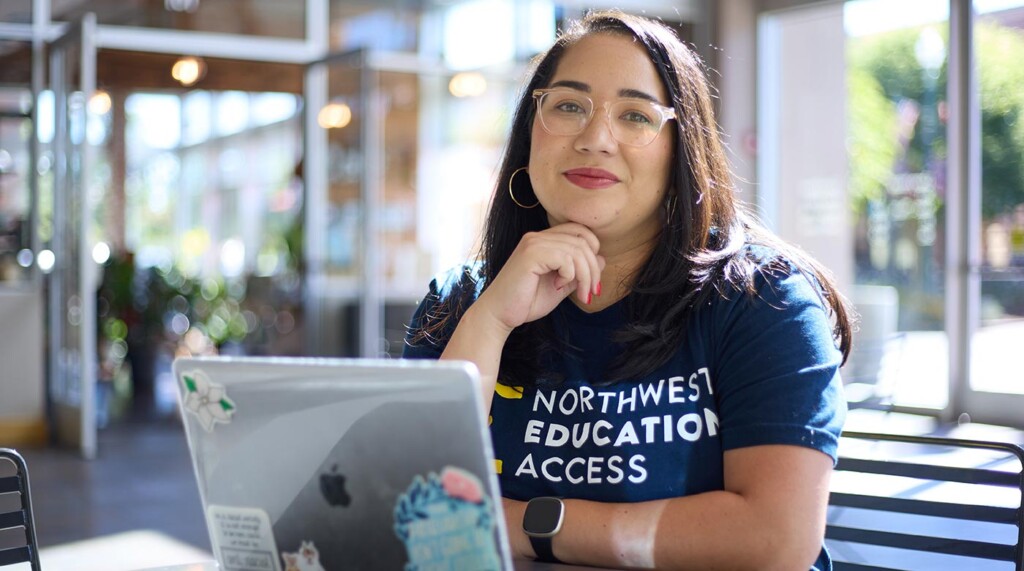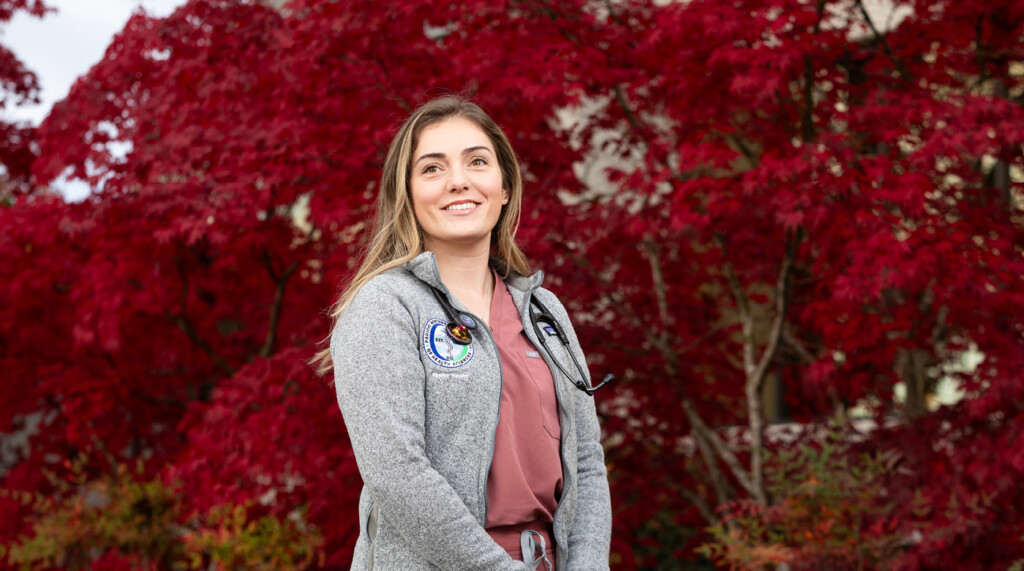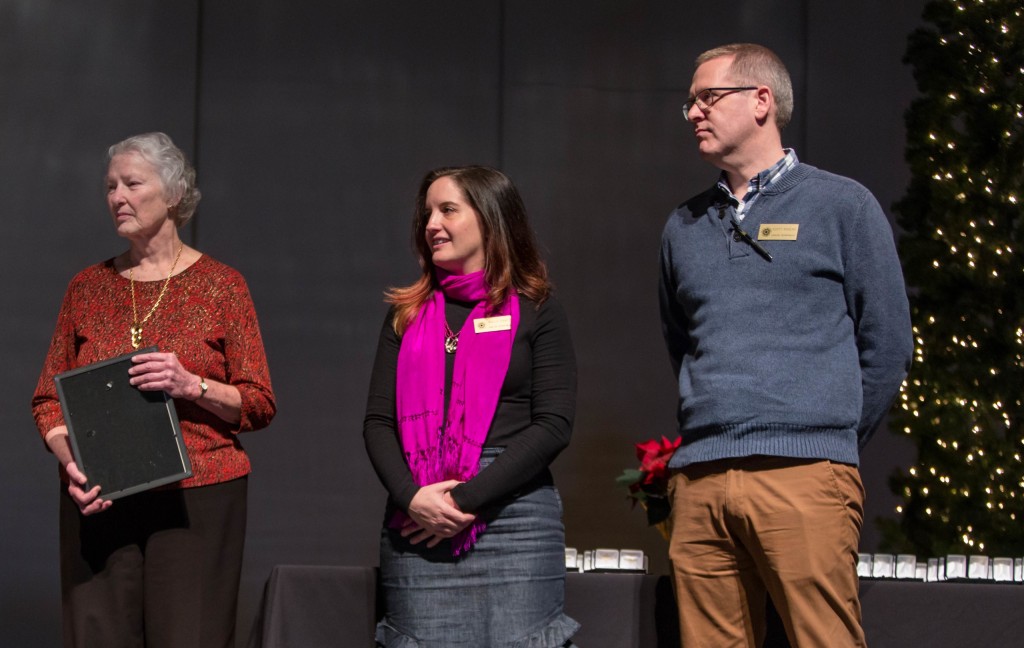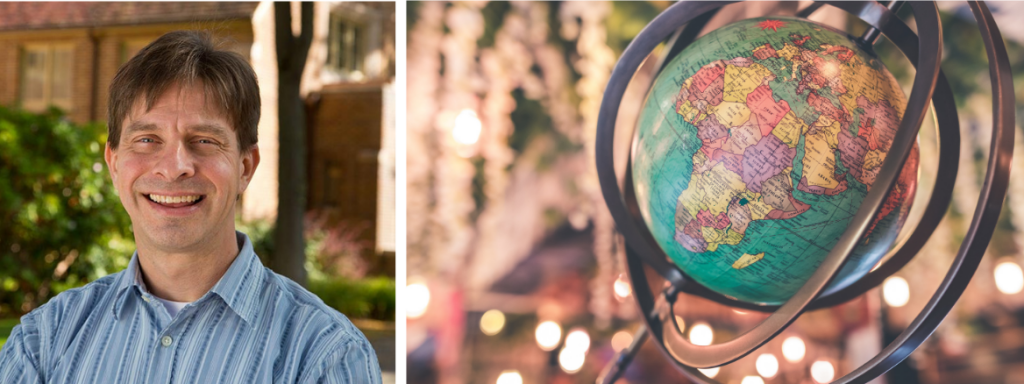Page 181 • (1,834 results in 0.052 seconds)
-

Travis McDaneld ’23 is entering his fourth year at PLU as an economics major, minoring in data science. When he enrolled at PLU, he had every intention of majoring in business, although he admits to not having any idea about what he wanted to do…
, and she’s an email away. We had a meeting with her and the rest of the executive team and just talked about the internship, and they gave us advice. That’s part of what I love about Russell Investments. There’s no feeling of elitism or discrimination because you haven’t been there very long. It’s a very healthy working environment. More practically, though, I get to use the skills I’ve built over my time in school in an atmosphere surrounded by finance, which is close to what I major in and love
-

While at PLU, Angela Pierce-Ngo ’12 was worried by a troubling pattern. After the first year of college, many peers and friends — especially classmates of color — left school or took an extremely long break. Even as she worked as a diversity advocate and…
come to us at 27, working and with a family, but decide it’s the right time to return. After experiencing life and the workforce, they say, ‘Now I know what I want to do.’ Career exploration is a lifelong process. But schooling hasn’t changed in 100 years,” she says. “So how can we adapt and shift what education looks like? There are many ways to learn other than through a four-year degree.” Even obtaining financial aid can be a byzantine, contradictory process that goes a little smoother with an
-

When PLU science students returned to campus in fall 2022 they were in for a surprise. The previously outdated anatomy and physiology lab in the Rieke Science Center had been transformed into a cutting-edge learning facility, complete with best-of-its-kind educational technology, thanks to contributions from…
world’s needs at a time when healthcare and the natural world are in crisis. This is the right thing to do for our students, and also the right thing to do to invest in the well-being of others and the earth. These renovations will better equip pre-health science students with the knowledge and skills they need to transition into graduate programs. We’re grateful for Pierce County’s investment and partnership to help create a larger pipeline of qualified candidates who are already connected to and
-

Shelby Hatton (Murdock) ’17 always knew she wanted to become a doctor, but now that she’s in osteopathic medical school she’s still deciding on what kind of doctor. The challenge, she says, is that she’s enjoying every aspect of her studies. That’s no surprise, because…
? Going all the way back to elementary school, I was fascinated by the human body. Then I loved all my science courses in middle school and high school. By the time I got to college, pursuing a pre-med pathway felt like the best reflection of my interests. Plus, I’ve always really enjoyed helping people, so it seemed like a natural fit for me. Like many medical students, you earned a Master of Arts in Medical Sciences (MAMS) degree prior to enrolling in your doctoral program. What was that program
-

Global studies and religion professor Erik Hammerstrom has spent his career researching and teaching about the history of Chinese Buddhism. He’s a quintessential teacher, beloved by students for leading engaging discussions, his imaginative project assignments, and planning field trips to nearby temples. It’s hard to…
shifts, I am a working chaplain at the hospital, so I serve people’s religious needs. I pray with them if they want prayer. I did that today for someone before they went into surgery. That’s really common. I’m often with families who just lost a loved one in the emergency room or the ICU. I also spend a lot of time just moving around the hospital and talking with folks. I think when folks think of chaplaincy work, it’s often those intense moments – like you mentioned outside of the ER and ICU – that
-
Dr. Samuel Torvend spent his sabbatical during the 2019-20 school year researching environmental consciousness and sustainability in early medieval monastic communities. Early medieval monasteries were built to last, he emphasizes. “When these monastic communities were established, they did not think they were going to be…
to sustain life.” No one ever went needy.Before the pandemic, Dr. Torvend spent time at Saint John’s University in Minnesota, the location of one of the largest Benedictine communities in the world. There he worked in the Alcuin Library and the Hill Monastic Manuscript Center.In late February he flew to Rome, and then visited monastic sites outside of the city, taking videos and photographs of the terrain. “I was at one site, San Vincenzo al Volturno, the largest abbey of the early medieval world
-
Originally published in 2021 Dr. Samuel Torvend spent his sabbatical during the 2019-20 school year researching environmental consciousness and sustainability in early medieval monastic communities. Early medieval monasteries were built to last, he emphasizes. “When these monastic communities were established, they did not think they…
in which each person offered his or her labor and each received what was needed to sustain life.” No one ever went needy. Before the pandemic, Dr. Torvend spent time at Saint John’s University in Minnesota, the location of one of the largest Benedictine communities in the world. There he worked in the Alcuin Library and the Hill Monastic Manuscript Center. In late February he flew to Rome, and then visited monastic sites outside of the city, taking videos and photographs of the terrain. “I was at
-

“Inquiry. Collaboration. Development. Those are the three words we choose to define the work we do at the lab.” – Dr. Adela Ramos The Digital Humanities Lab, or DHLab, is a creative space at Pacific Lutheran University that offers support to faculty and students seeking…
about collaboration.” In terms of development, the DHLab transforms projects envisioned by students or faculty that may seem out of reach at a first glance, turning them into practical and attainable plans. With these three unique values in mind, the DHLab is building a community at PLU one project at a time. Faculty and students come together to produce projects around intellectually significant questions, including the three featured on this page. The DHLab directors are also very happy with how
-

TACOMA, WASH. (June 27, 2019) — Dr. Jon Grahe’s reach extends around the globe as an open science ambassador. Nearly a decade ago, Dr. Grahe declared that he wanted to change how we study social science. Because of his tireless efforts, a new approach to…
taught research methods, statistics and capstone courses (e.g., senior research projects and theses) at Monmouth College and Pacific Lutheran University. During this time, he recognized that students could learn research methods and contribute to social science concurrently, with results disseminated beyond his classroom. Dr. Grahe’s desire to improve psychology students’ training and educational experiences, as well as the method in which social science data are collected, analyzed and discussed
-

Biology major Elizabeth Larios ’21 was awarded a Fullbright scholarship for her work in Namibia. When she was in fourth grade, Larios wanted to be a neurosurgeon. That’s when her class took a field trip to a science museum and Larios saw an exhibit about…
plans to observe nurses and doctors to understand current hygiene standards before working with staff to create a collaborative infection control course to implement new standards. But her time in Namibia won’t just be spent conducting research. She will also teach marimba to fourth- and fifth-grade girls at a local private school. More than an aspiring doctor, Larios is also an accomplished musician and has been playing multiple percussion instruments since high school. She was a member of PLU’s
Do you have any feedback for us? If so, feel free to use our Feedback Form.


